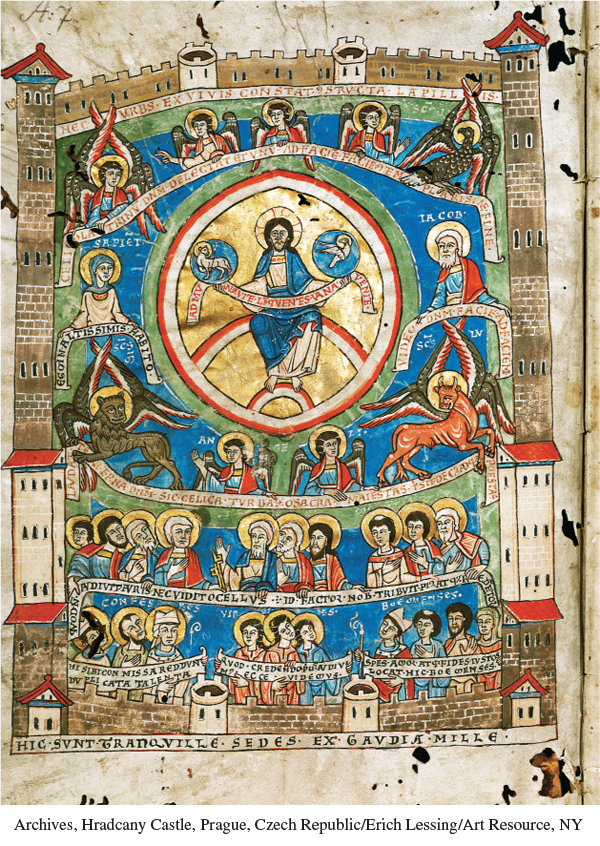Saint Augustine on Human Nature, Will, and Sin
The most influential church father in the West was Saint Augustine of Hippo (354–430). Saint Augustine was born into an urban family in what is now Algeria in North Africa. His father, a minor civil servant, was a pagan; his mother, Monica, was a devout Christian. He gained an excellent classical education in philosophy and rhetoric and, as was normal for young Roman men, began relations with a concubine, who later had his son. Interested in new religious ideas, he became a Manichaean.
194
Augustine took teaching positions first in Rome and then in Milan, where he had frequent conversations with Bishop Ambrose. Through his discussions with Ambrose and his own reading, Augustine rejected his Manichaeism and became a Christian. He returned to Africa and later became bishop of the seacoast city of Hippo Regius. He was a renowned preacher to Christians there, a vigorous defender of orthodox Christianity, and the author of more than ninety-
Augustine’s autobiography, The Confessions, is a literary masterpiece and one of the most influential books in the history of Europe. Written in the rhetorical style and language of late Roman antiquity, it marks the synthesis of Greco-
Augustine’s ideas on sin, grace, and redemption became the foundation of all subsequent Western Christian theology, Protestant as well as Catholic. He wrote that the basic force in any individual is the will, which he defined as “the power of the soul to hold on to or to obtain an object without constraint.” The end or goal of the will determines the moral character of the individual. When Adam ate the fruit forbidden by God in the Garden of Eden (Genesis 3:6), he committed the “original sin” and corrupted the will. Adam’s sin was not simply his own — it was passed on to all later humans through sexual intercourse; even infants were tainted. Original sin thus became a common social stain, in Augustine’s opinion, transmitted by sexual desire. Coitus was theoretically good because it was created by God, but it had been corrupted by sin, so every act of intercourse was evil and every child was conceived through a sinful act. By viewing sexual desire as the result of Adam and Eve’s disobedience to divine instructions, Augustine linked sexuality even more clearly with sin than had earlier church fathers. Because Adam disobeyed God and fell, all human beings have an innate tendency to sin: their will is weak. But according to Augustine, God restores the strength of the will through grace, which is transmitted in certain rituals that the church defined as sacraments. Grace results from God’s decisions, not from any merit on the part of the individual.
195
When Visigothic forces captured the city of Rome in 410, horrified pagans blamed the disaster on the Christians. In response, Augustine wrote City of God. This original work contrasts Christianity with the secular society in which it exists. According to Augustine, history is the account of God acting in time. Human history reveals that there are two kinds of people: those who live the life of the flesh, and those who live the life of the spirit in what Augustine called the City of God. The former will endure eternal hellfire; the latter will enjoy eternal bliss.

Augustine maintained that states came into existence as the result of Adam’s fall and people’s inclination to sin. He believed that the state was a necessary evil with the power to do good by providing the peace, justice, and order that Christians need to pursue their pilgrimage to the City of God. States’ legitimate power included the ability to wage war, and Augustine’s ideas were later used to develop notions of just warfare.